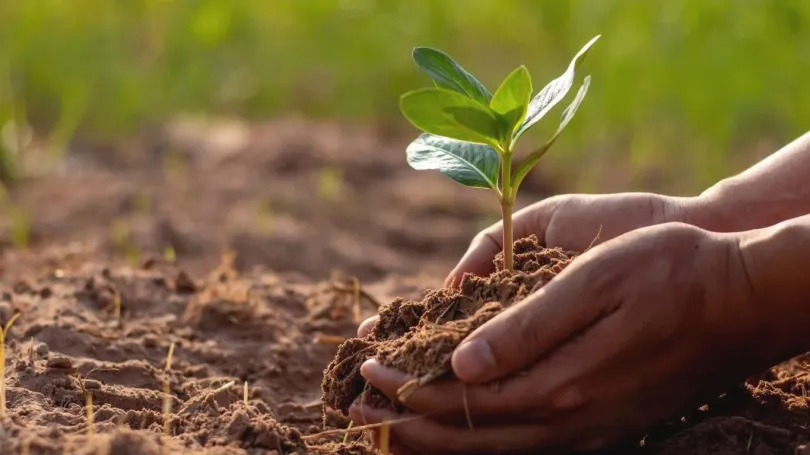Soil health is a crucial aspect of agriculture and environmental sustainability. To foster healthy soil, many farmers and gardeners are turning to organic methods that prioritize natural processes over synthetic interventions. These methods not only improve soil fertility but also benefit the overall ecosystem.
Compost is a fundamental component of organic soil health improvement. It’s made by combining organic waste such as kitchen scraps, yard clippings, and manure, allowing them to decompose into nutrient-rich humus. When incorporated into soil, compost enhances its structure, increases water retention, and provides essential nutrients for plants.
Another vital technique is crop rotation. This involves planting different crops in succession, which helps break pest and disease cycles while preventing soil nutrient depletion. Certain plants, like legumes, have the added benefit of fixing nitrogen in the soil, enriching it naturally.
Cover crops are plants grown primarily to protect and enrich the soil. They prevent erosion, suppress weeds, and add organic matter when they decompose. Examples of cover crops include clover, rye, and buckwheat. These crops also enhance biodiversity by providing habitats for beneficial insects.
Furthermore, mulching plays a crucial role in maintaining soil health. Applying a layer of organic material, such as straw, leaves, or wood chips, to the soil surface conserves moisture, suppresses weeds, moderates soil temperature, and gradually enriches the soil as it breaks down.

In addition to these techniques, vermicomposting is gaining popularity. This method involves using earthworms to break down organic matter, producing vermicompost, a nutrient-rich fertilizer. Worms aerate the soil as they tunnel through it, improving its structure and allowing better water and air penetration.
Biochar is another organic method that’s becoming increasingly recognized for its soil-enhancing properties. It’s a form of charcoal produced by heating organic material in a low-oxygen environment. When added to soil, biochar improves soil structure, retains moisture, and enhances nutrient availability.
Moreover, microbial inoculants are beneficial microorganisms that can be introduced to the soil to promote plant growth. These microorganisms improve nutrient uptake, suppress diseases, and enhance overall soil biology, fostering a healthier environment for plant roots.
It’s essential to note that these organic methods not only enhance soil health but also contribute to sustainable agriculture. They reduce reliance on synthetic fertilizers and pesticides, thereby minimizing environmental pollution and preserving biodiversity.
In conclusion, improving soil health through organic methods is a sustainable approach crucial for long-term agricultural productivity. By utilizing techniques like composting, crop rotation, cover crops, mulching, vermicomposting, biochar application, and microbial inoculants, farmers and gardeners can promote soil fertility while preserving the environment for future generations. These methods empower us to harness the natural processes of the Earth, fostering healthier ecosystems and sustainable food production.
